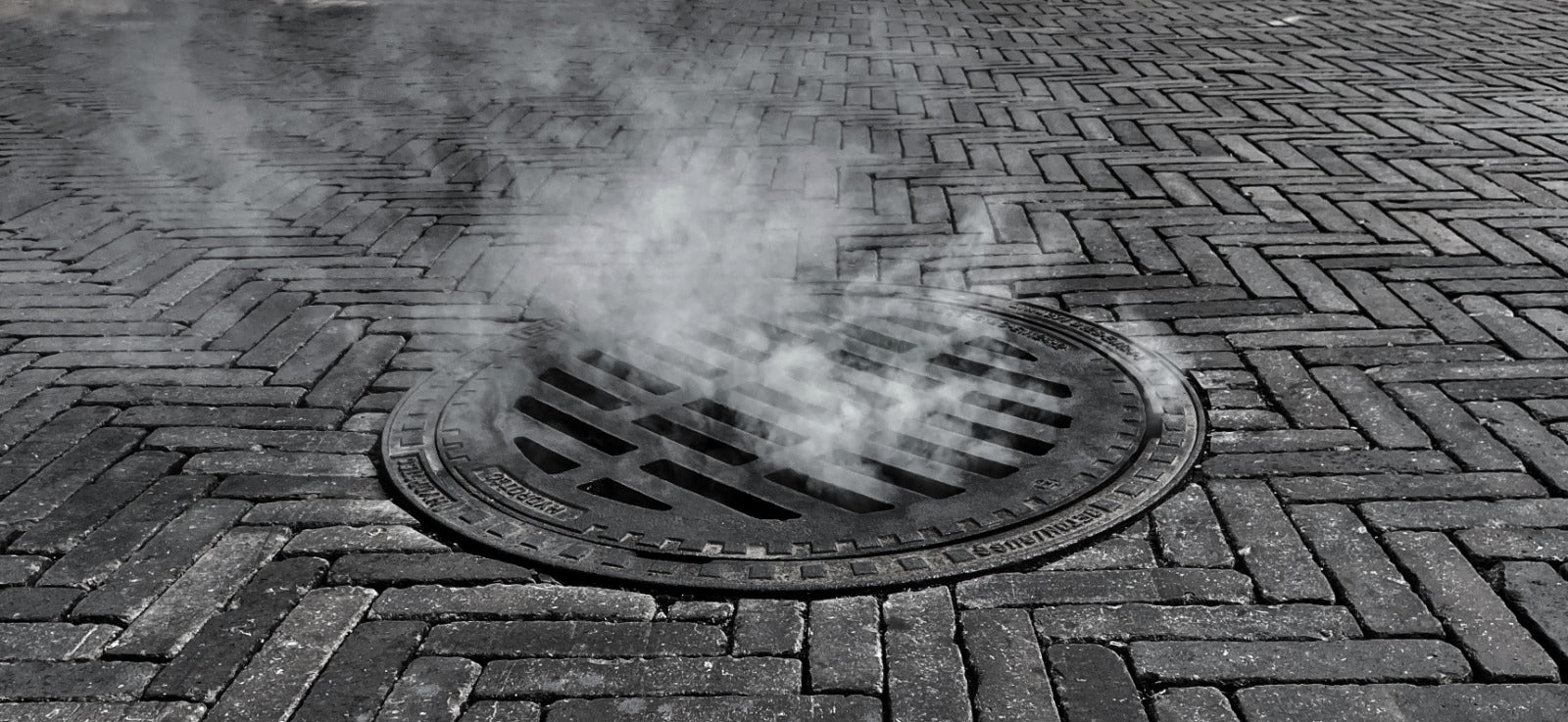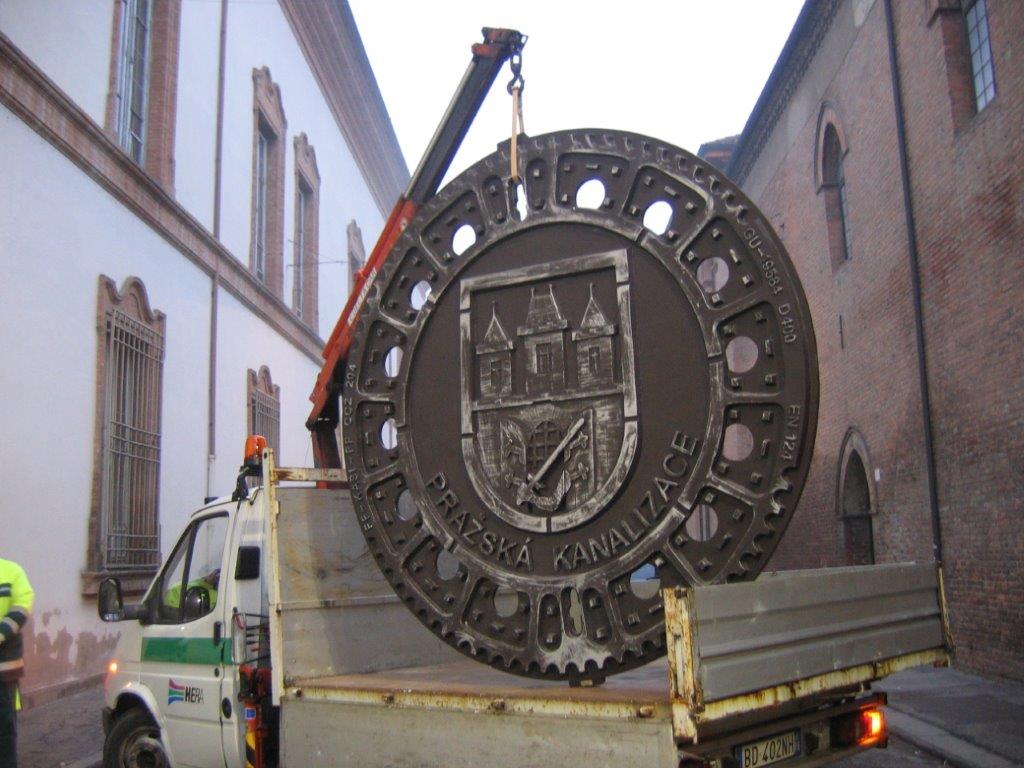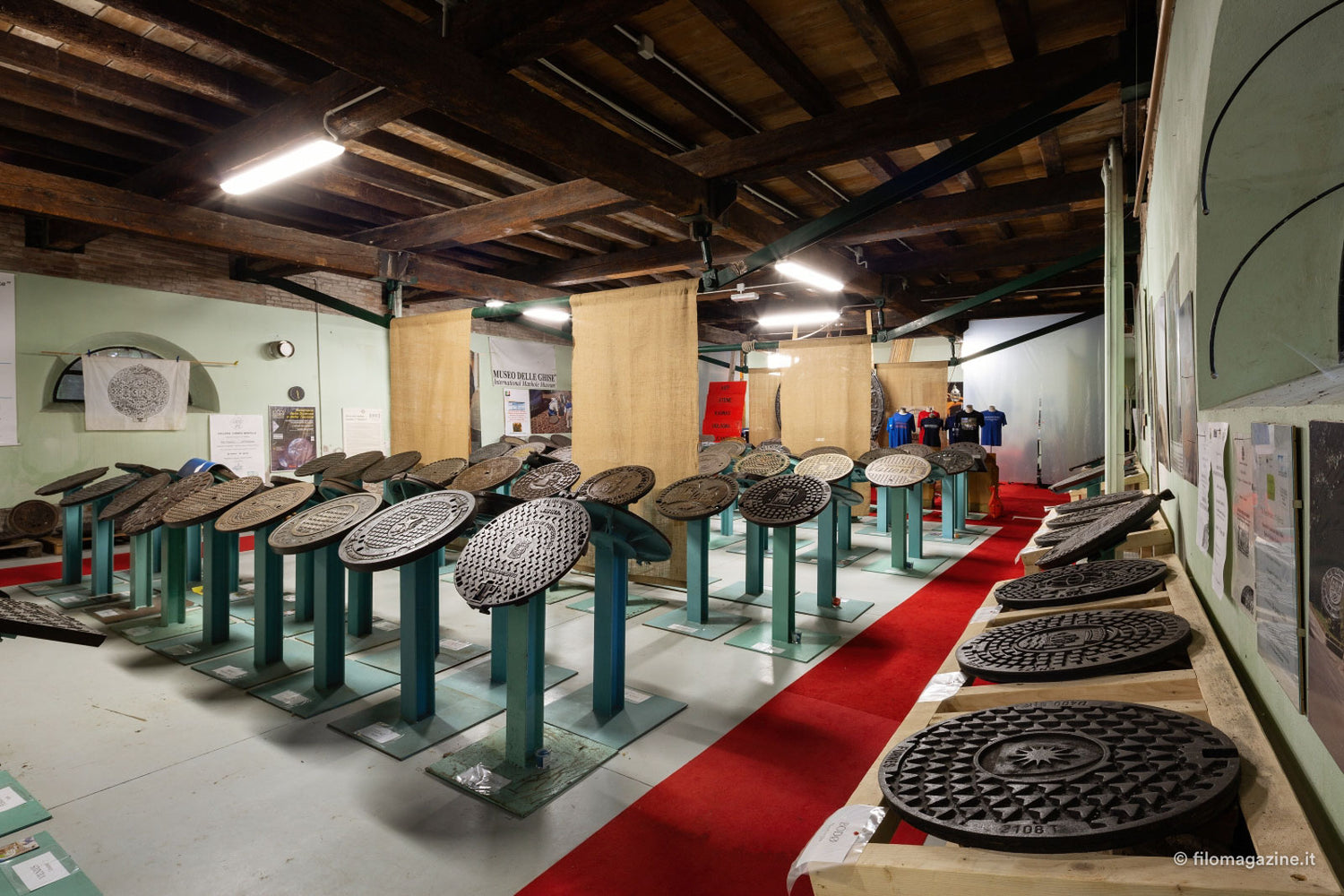
Only those who can see the invisible can accomplish the impossible

HISTORY
The collection
The International Cast Iron project, also known as the International Manhole Museum, was born in 1998 as photographic documentation by Stefano Bottoni and in 2002 it transformed into the largest collection of manholes in the world.
Stefano Bottoni is also the creator of the Ferrara Buskers Festival and during his travels in search of musicians he began to notice how each manhole told the story of the city in which it was placed.
The donations began thanks to the Mayor of Prague - Vladimir Vihan - who sent the first manhole cover from the collection, now made up of over 150 specimens from all over the world, each with its own story, depiction and effigy.

Museum Project
Manhole covers are artefacts, typical of the urban environment, with names, dates and historical symbols depicted in them, and can be considered true works of industrial design , witnesses of history.
Elements of industrial archeology whose archetype dates back to the period of Ancient Rome since the Bocca della Verità was actually a manhole, a warning light to guard against the flooding of the Tiber, a constant threat to the lower districts of the city. The manhole covers, in Ancient Rome, often bore the effigy of a river deity who "swallows" rainwater.
The exhibitions held:
Ferrara - San Paolo Cloister
Ferrara - Confartigianato
Bologna - Former Moto Morini Factory
Modena - Palace of Museums
Modena - Corni Technical Institute
Ferrara - University of Rectorate
Comacchio - Palazzo Bellini
Ferrara - Palazzo Sant'Anna
Rovigo - Museum of the Great Rivers
Ferrara - National Archaeological Museum
Vienna - Secession Palace area
-
MIT MUSEUM - MASSACHUSETTS INSTITUTE OF TECHNOLOGY
Moving purely functional objects from their context, collecting them and displaying them makes these objects "aesthetic", works of great refinement and creativity.
The ornamental cast iron manhole is an example of an often unrecognized urban artefact. Stefano Bottoni managed to look beyond.
They often show great skill in execution and are a true tribute to the anonymous creators and casters who created them.
Now we can start talking about "MANHOLE ART" and conceive a History of this Industry.
-
We can characterize these artefacts from a stylistic point of view, reflect on the functional design of the different types of roofing.
Bottoni opened our eyes to that craftsmanship, that industry, and above all that art that lies beneath our feet.
-
Gary Van Zante
Curator of Architecture and Design
MIT MUSEUM MASSACHUSETTS INSTITUTE OF TECHNOLOGY
